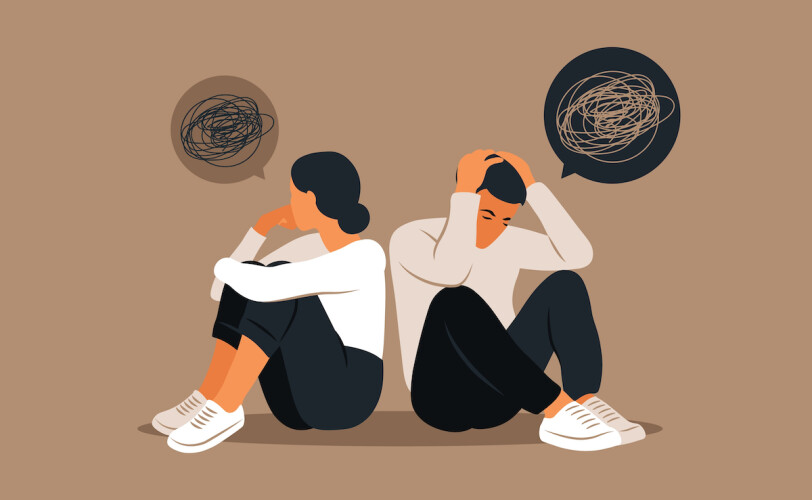Codependency is a complex relational dynamic that affects countless individuals and families across the United States, including those in Ohio. It often manifests as an unhealthy attachment between partners, where one person may prioritize the needs of the other over their own. This phenomenon can lead to significant emotional distress, dysfunctional relationships, and even substance abuse issues. At Couples Rehab in Ohio, we recognize the importance of understanding codependency to foster healthier relationships and promote overall well-being. In this article, we will delve into the prevalence of codependency in Ohio, its impact on individuals and relationships, and the avenues available for recovery.
What is Codependency?
Defining Codependency
Codependency is typically characterized by an excessive reliance on a partner for emotional support and validation. Individuals with codependent tendencies often find their self-worth tied to the needs and feelings of others, leading to an imbalance in relationships. This can create an unhealthy cycle where one partner’s issues, often including addiction or mental health challenges, dominate the relationship dynamics.
The Signs of Codependency
Recognizing the signs of codependency is crucial for those affected. Common indicators include:
- People-Pleasing: A constant need to satisfy others’ needs, often at the expense of personal desires.
- Fear of Abandonment: An intense fear of losing a partner, leading to clinginess or controlling behavior.
- Low Self-Esteem: A diminished sense of self-worth, often linked to the perception of being unlovable without the partner.
- Difficulty Setting Boundaries: Challenges in expressing personal needs or saying no, which can lead to resentment.
Understanding these signs is vital for individuals in Ohio who may be struggling with codependency, as acknowledgment is the first step toward change.
Prevalence of Codependency in Ohio
Statistical Insights
While comprehensive statistics on codependency specific to Ohio are limited, the prevalence of mental health and substance abuse issues can provide some context. According to the Substance Abuse and Mental Health Services Administration (SAMHSA), nearly 8.5% of Ohio residents reported having a substance use disorder in 2021. Many individuals struggling with addiction also experience codependent relationships, either as the person addicted or as a loved one supporting the addict.
Additionally, the Ohio Department of Mental Health and Addiction Services reports that about 1 in 5 adults in Ohio experiences a mental health issue annually. This statistic indicates a broader context where codependency may flourish, particularly in relationships involving mental health challenges.
Impact on Families and Communities
The impact of codependency extends beyond individual relationships, affecting families and communities. Children raised in codependent households often replicate these patterns in their own relationships, perpetuating the cycle. This can lead to a community culture where emotional well-being is compromised, resulting in increased rates of anxiety, depression, and substance abuse.
The Impact of Codependency on Relationships
Emotional Consequences
Codependency often creates a toxic environment where genuine emotional connection is replaced by anxiety and fear. Partners may become enmeshed, losing their sense of individuality. This emotional distress can lead to:
- Increased Anxiety: Constant worry about the partner’s feelings or behaviors.
- Resentment: A buildup of unexpressed frustrations, often leading to conflicts.
- Isolation: Withdrawal from friends and family due to the intensity of the relationship.
Physical Health Effects
The stress associated with codependent relationships can also have physical repercussions. Chronic stress may lead to various health issues, including:
- Headaches: Tension headaches or migraines may become more frequent.
- Gastrointestinal Problems: Stress can exacerbate conditions like irritable bowel syndrome (IBS).
- Sleep Disorders: Insomnia or disturbed sleep patterns can arise from anxiety and stress.
At Couples Rehab in Ohio, we emphasize the importance of addressing both emotional and physical health in recovery programs.

Strategies for Overcoming Codependency
Individual Therapy
One of the most effective ways to address codependency is through individual therapy. Therapy provides a safe space for individuals to explore their feelings, identify unhealthy patterns, and develop healthier coping mechanisms. Techniques often used in therapy include:
- Cognitive Behavioral Therapy (CBT): Helps individuals identify and challenge negative thought patterns.
- Dialectical Behavior Therapy (DBT): Focuses on mindfulness and emotional regulation, which can be beneficial for those struggling with intense emotions.
Couples Therapy
Couples therapy can be particularly effective for partners in a codependent relationship. Through structured sessions, both partners can learn to communicate more effectively, set boundaries, and develop healthier dynamics. At Couples Rehab in Ohio, we provide specialized programs that focus on rebuilding trust and fostering independence.
Support Groups
Support groups offer a sense of community and shared understanding. Many organizations, including Al-Anon and Codependents Anonymous, provide resources for individuals seeking support. Sharing experiences with others who understand can be a powerful tool in breaking the cycle of codependency.
Setting Boundaries
Learning to set healthy boundaries is crucial for individuals seeking to overcome codependency. This includes:
- Understanding Personal Needs: Identifying what you need emotionally and physically from a relationship.
- Communicating Boundaries: Expressing needs clearly to partners without guilt or fear.
- Practicing Self-Care: Prioritizing personal well-being and engaging in activities that promote mental and physical health.
The Role of Couples Rehab in Ohio
Specialized Programs
At Couples Rehab in Ohio, we recognize that codependency often intersects with addiction and mental health challenges. Our specialized programs focus on treating both the individual and relational aspects of codependency. We provide:
- Assessment and Diagnosis: Comprehensive evaluations to understand the unique needs of each couple.
- Tailored Treatment Plans: Customized approaches that integrate individual and couples therapy.
- Aftercare Support: Ongoing resources and support for couples as they navigate recovery together.
The Importance of Seeking Help
Seeking help is a crucial step in addressing codependency. Many individuals in Ohio may feel ashamed or hesitant to reach out, but recognizing the need for support is a sign of strength. Couples Rehab provides a welcoming environment where individuals can begin their journey toward healthier relationships.
Conclusion
Understanding codependency is essential for fostering healthier relationships in Ohio. By recognizing the prevalence and impact of codependency, individuals can take proactive steps toward recovery. At Couples Rehab in Ohio, we are committed to providing the resources and support needed to break the cycle of codependency. Through therapy, support groups, and individualized care, we empower couples to build stronger, more fulfilling relationships. If you or a loved one is struggling with codependency, we encourage you to reach out and take the first step toward a healthier future.



